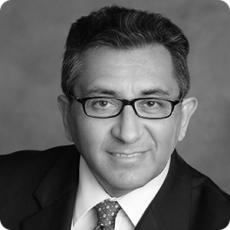In 2019, Transparency International and Afrobarometer launched a new edition of the Global Corruption Barometer – Africa. This showed that the majority of people believe that corruption is increasing and that governments are not doing enough. Who is to blame in this scenario and what can the international community do to counteract corruption? These are just two of the questions our experts have answered.
What are the major causes of corruption in Africa?

“As in many other regions, corruption in Africa is the product of multiple factors. For example, civil service that is still in transition after a series of reforms where low levels of accountability, transparency and efficiency often lead to incentives to abuse power. Also, cumbersome legislation, overlapping responsibilities of different government agencies, legal confusion, all contribute to increase the discretionary power of public officials. Overseeing and control of institutions remain weak despite the creation of anti-corruption and justice system supervisory entities, the implementation of anti-corruption legislation and the efforts of the international donor community to strengthen government institutions. Further, most of the countries lack an effective judicial system to prosecute and sanction corrupt officials. Finally, an absence of political will, weak social controls and mixed attitudes towards corruption are also contributing factors.”

“The failure to implement adequate governance systems and processes in both public and private sector companies has led to the demise of the economic credibility of many African countries. Particularly in South Africa, the dynamics that underpin corruption relate to the absence of basic detection systems and ethical conduct on the part of public servants. In the African context, South Africa stands out as one of the countries that have failed dismally, allowing State capture to occur to further impede economic development. It is inevitable that corruption will have a ripple effect on every African citizen regardless of social and economic standing.”

“The major causes of corruption in Africa are the negative colonial legacy, poor leadership, weak institutions of governance, corporate politics, elimination of people from participation in state management, a lack of accountability and transparency, weak ethical values, the centralist nature of the state and a concentration of state power, a weak judicial system and constant insecurity and conflicts.”
Which sectors does corruption affect the most?

“The most affected sectors are the security sector (police services) which take bribes in order to allow criminals to evade justice. The other sector is the justice sector, especially the judiciary, where corrupt people bribe judicial officers to have their cases delayed or get acquitted. More recently, the education sector has been affected through cheating in examinations and the mushrooming of tertiary education institutions offering substandard education to citizens.”

“In the economic and social dimension, corruption adversely affects domestic and foreign investment, restricts trade, distorts the size of the composition of government expenditures, weakens the financial system and strengthens the informal economy. Most importantly, corruption can reduce economic growth and competitiveness. This, in turn, adversely affects the levels of poverty and income inequality. Nonetheless, unbundling corruption can help to reveal variation across countries in Africa.”
How does the rise of corruption affect international aid to African countries?

“Firstly, the aid does not get used for the purposes for which it was intended, namely to reduce poverty and improve the quality of social services to the most vulnerable on the continent. Secondly, the development sector is affected when poverty reduction programs initiated through international aid do not reach the people who need them most. In some cases, international aid ends up being used by the political class who further their personal interests by prolonging their stay in power in spite of constitutional provisions for periodic democratic elections. This has led to civil wars in some African countries in cases where electoral laws are not enforced when electoral disputes arise after national elections. Thirdly, corruption sometimes makes the implementation of programs supported by international aid difficult especially where local partners/implementers need/expect kickbacks before approvals are granted.”

„International aid had not been spared either when it comes to corruption. Billions of dollars coming into the continent as foreign aid have been ‘taken’ by corrupt individuals, groups and cartels. In some cases, countries get international aid to cover for deficits created by corruption and even that international aid gets stolen and the country has to seek yet more aid. It is a vicious cycle that saw Zambia lose its International Airport to China for lack of loan repayment in 2018. Kenya, Egypt and Ethiopia are dangerously tipping towards a similar risk as well. For Kenya, a loss of control over the port of Mombasa could be greatly detrimental not only to the country but also to its landlocked neighbors who rely on the port to receive exports. There is also the real risk that international donors and development partners could reduce international aid. What then for a developing continent? Further, international aid is mainly meant to help alleviate development issues and boost poor economies”.
What should the international community do to reduce corruption in developing countries?

“There is no blueprint or quick fix, but the international community can do a lot to reduce the risk of corruption in developing countries. Firstly, it must lead by example, as corruption is a challenge for all societies in the world, developed or developing. Secondly, it can also encourage countries to adhere to international and regional standards and principles as earmarked in the United Nations Convention against Corruption or the African Union Convention on Preventing and Combating Corruption to ensure collaboration and exchange regarding anti-corruption. Thirdly, the monitoring and use of corruption control mechanisms involving fiduciary rules, procurement rules and financial management reforms, among others should be implemented. Fourthly, in addition to emphasizing anti-corruption through institutional change, the international community must see anti-corruption as a means to an end to achieve the sustainable development goals (SDGs). Fifthly, encourage and support anti-corruption efforts on both the “supply side” (government policies and strategies) and the “demand side” (social accountability). Lastly, curbing corruption can be a daunting task but it is necessary to restore public trust in democratic governance. Anti-corruption activities can be encouraged and fostered by the international community, but the drive, political will and the leadership must come from within each country.”

“The international community should assist developing countries by providing material, intellectual and technical assistance in the creation of anti-corruption legislation and state institutions that would allow them to combat this phenomenon effectively.”

„As a human rights advocate and student, the international community has a role to play in holding African countries to account in the violation of the rights to freedom of expression and peaceful assembly. Many have been arbitrarily arrested, detained and subjected to enforced disappearance for speaking out against corruption.”
Check more than 20 job opportunities in the anti-corruption sector here.

